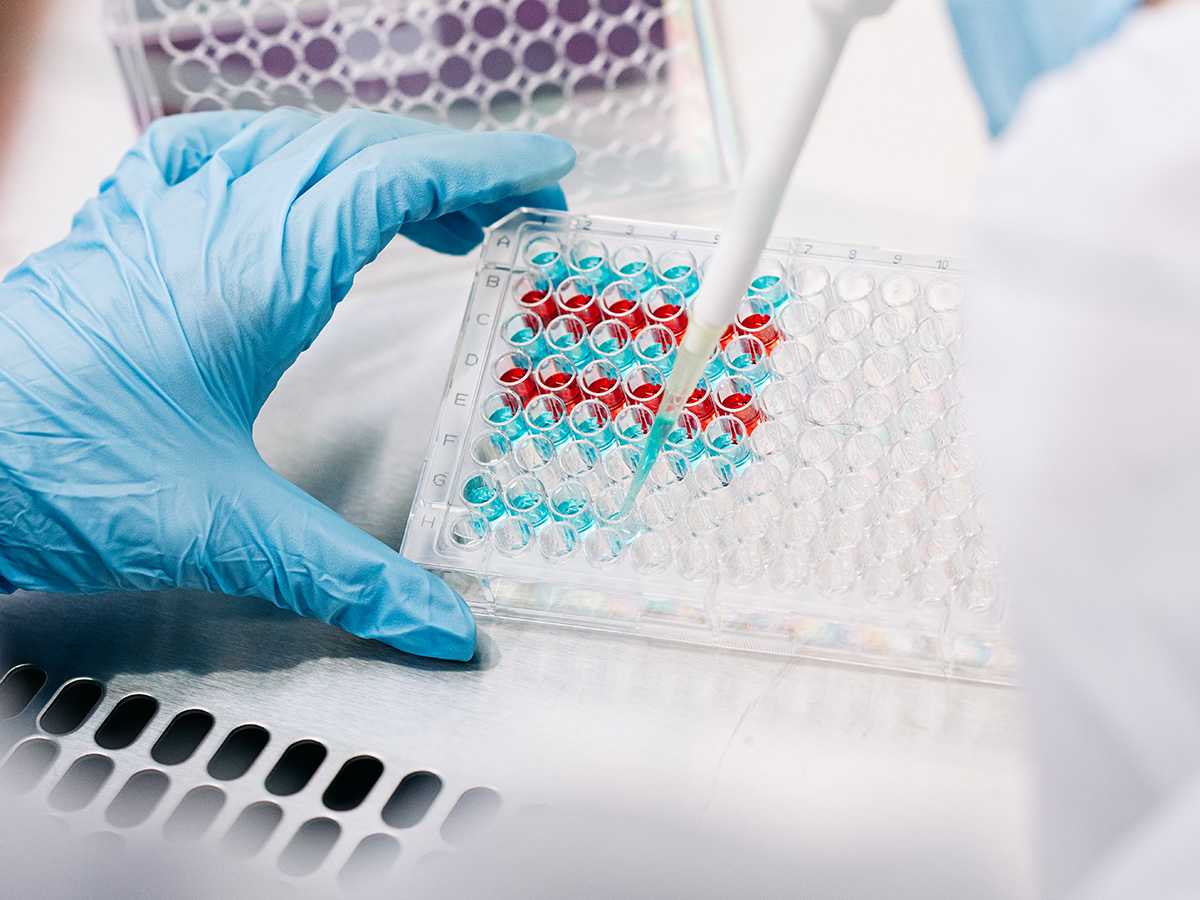 Recent studies of psychedelic therapy, using substances like psilocybin and lysergic acid diethylamide, or LSD, show rapid and lasting improvements to conditions like depression and addiction.
Recent studies of psychedelic therapy, using substances like psilocybin and lysergic acid diethylamide, or LSD, show rapid and lasting improvements to conditions like depression and addiction.
One University of Alabama at Birmingham researcher is studying a safer, more targeted version of these substances. Jamie Peters, Ph.D., associate professor in the Department of Neurobiology, and a team of researchers are studying a lab-made compound called tabernanthalog, or TBG.
Inside psychedelic therapy
The interest in psychedelics to treat depression and addiction grew from studies showing lasting results in mood, cravings and behavior.
“These effects are mediated by neurobiological mechanisms such as enhanced structural plasticity and functional connectivity in brain regions that regulate emotion and reward,” Peters said.
Unlike traditional antidepressants or addiction medications, psychedelics work by targeting serotonin receptors in the brain. This can create fast and profound changes in perception, emotion and neural connectivity that can lead to lasting benefits after only one or two treatment sessions.
By comparison, typically antidepressants like SSRIs work by slowly adjusting serotonin levels and often take weeks to show effects. Addiction treatments such as methadone, buprenorphine and naltrexone work on opioid receptors to replace, stabilize or block drug signaling.
Psychedelics are currently only used in controlled clinical settings as part of structured psychedelic-assisted therapy protocols. This is because the substances can cause hallucinations and sensory changes, which pose a significant risk if taken without supervision.
Substances are administered in a safe, supportive setting with a trained therapist, who helps guide patients and process any insights afterward.
“One common misconception is that psychedelic therapy simply involves ‘taking a trip’ to feel better,” Peters said. “Current clinical use involves carefully controlled dosing, medical screening, and professional psychological support before, during and after each treatment session.”
Another misconception is that psychedelics are addictive or may harm the brain. Research shows that classic psychedelics like psilocybin and LSD have a low risk of abuse and are generally safe when used in controlled, clinical settings.
“Many assume the therapeutic effects of psychedelics stem exclusively from their pharmacological effects,” Peters said. “Evidence suggests it is the combination of pharmacology and guided psychotherapy that promotes the best long-term therapeutic outcomes.”
TBG: developing safer psychedelic-inspired therapeutics
While many psychedelic compounds show promise, they often come with side effects like cardiac risks and intense hallucinations. One naturally occurring compound, ibogaine — derived from the root bark of a shrub in Central and West Africa — has long been studied for its potential to treat addiction. Studies and reports from as early as the 1960s have supported its potential to treat opioid, stimulant and alcohol dependence. However, with ibogaine’s safety concerns, it has limited clinical use.
In collaboration with the lab of Jasper Heinsbroek, Ph.D., assistant professor in the Department of Neurobiology, and David Olson, Ph.D., at the University of California, Peter’s lab and the team are studying a synthetic version of ibogaine called tabernanthalog, or TBG.
“This new compound appears to retain the therapeutic effects of ibogaine without carrying the burden of its major side effects,” Peters said. “In our preclinical studies with TBG, a single dose was able to reduce relapse for heroin weeks after the treatment.”
Like other psychedelics, some of TBG’s anti-addictive effects appear linked to serotonin receptors in the brain. Researchers are actively investigating additional brain targets, pathways and mechanisms involved.
Because TBG does not produce hallucinations or cardiac toxicity, it may offer a faster path toward FDA approval and broader accessibility, potentially even as a take-home medication, giving new hope for safer, more effective addiction treatments.